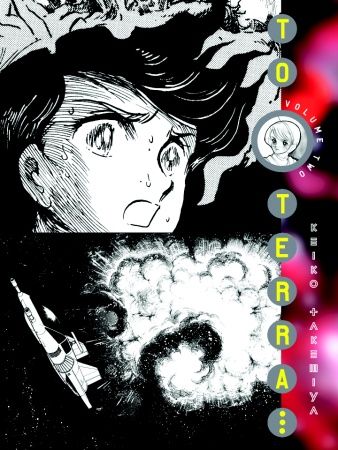Philosophy: Ed Sizemore writes about the deeper meaning of Keiko Takemiya's classic sci-fi manga To Terra:
Takemiya’s real concern is the same as the ancient Greek playwrights. She is writing to combat hubris, or extreme arrogance. It’s a belief there are no limits to one’s actions and a failure to recognize there are boundaries to life, which if violated will result in one’s destruction. In the old Greek tragedies, hubris was the downfall of the protagonist. The gods swiftly punished those that dared violated divine law or dared to imagine themselves as equal to the gods. Takemiya isn’t worried about divine law, but natural law. She is writing to warn us against the belief that we can become masters of nature and ourselves.
Review: Christopher Allen reviews Tim Hensley's Wally Gropius, which mimics the style of Harvey comics and relies on a lot of sight gags: "I think the way to approach the book is as a lavish, frequently funny, if superficial, joke."
Review: Tucker Stone, on the other hand, immerses himself in Jim Woodring's Weathercraft, which he finds anything but superficial.
Review: It's good news for readers when Chris Sims hates a book, because it gives him an excuse to perform one of his trademark vivisections, as with this takedown of Justice League: The Rise of Arsenal #3.
Auteurs: You know, there's something awesome about reading a critique of The Wizard of Id in French. Loleck analyzes the humor of the long-running strip at du9.


